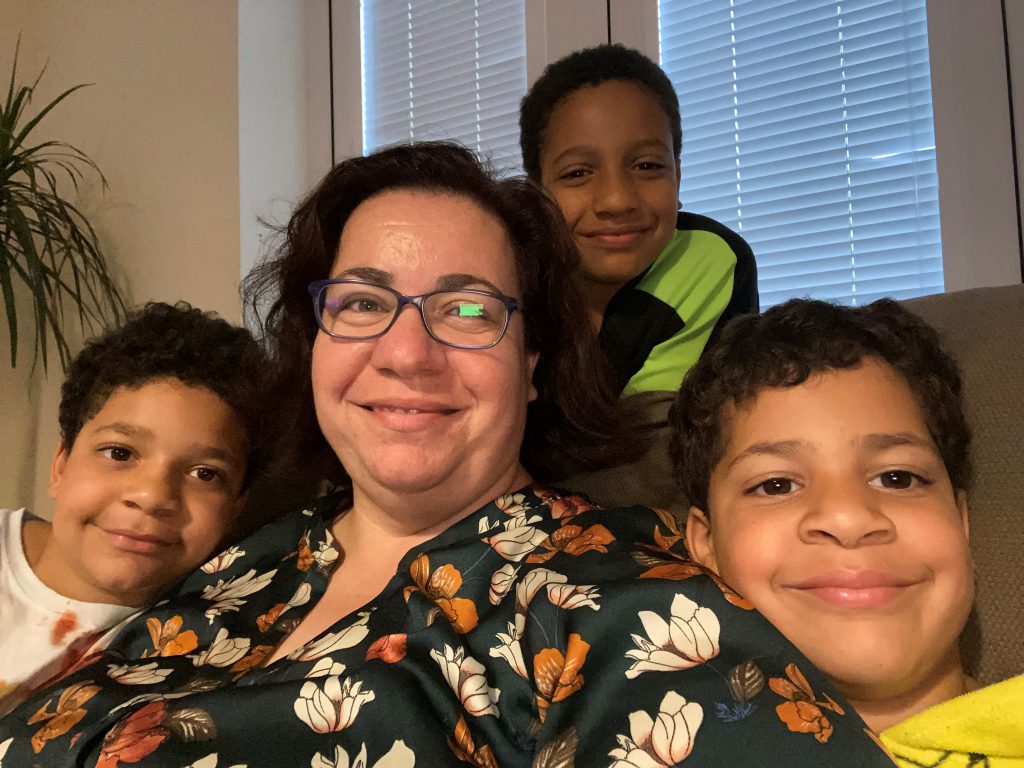
Until recently, it seemed fair to assume that school was where our kids learned things and the office was where we, the grownups, worked.
Then lockdown happened and two worlds collided.
Suddenly, I was at home trying to help my 3 boys (ages 5, 7 and 9) complete their school tasks. At the same time, I also tried to keep up my full time job as best as I could.
As we all struggled to maintain our old routines, chaos set in.
Our old routines didn't fit
I found I couldn’t provide the structure the boys were used to at school and, equally, my normal 9-5 work routine didn’t seem to make sense.
Trying to fit the old world into this strange new reality was like juggling bricks.
Amidst all this, I had a revelation.
While the structure of school was a great way to get a group of 30 kids to complete set tasks, I began to question whether it had given them the skills they need to learn.
I began to wonder, how children who’d been to schools where independent learning is encouraged were faring during this time? Does learning in this way foster more curiosity, as well as equip children the tools to explore themes they’ve chosen by themselves?
What this means for us
As we prepare for our Learning Campaign on 15 and 16 July, I began to think how this applied to us, especially when most of us are still working from home.
Learning at work can be viewed as a prescribed punishment rather than an opportunity.
How can we transform the mindset of our staff so they’ve got the curiosity to learn new things? How can we transform our organisations, so we focus on enabling them to do so (rather than telling them what/how to learn)?
It seems that for the foreseeable future, our world will be remote.
What that means for us as an organisation is still sinking in.
It's more than just a change of location
It’s much more than just a change of physical location. There’s a mental shift, that could require far greater levels of autonomy and self-management. That mental shift didn’t happen with my kids, no autonomy or self-management there, let me tell you.
Trust is key
This will be harder to acclimatise to. It means ensuring that there’s a high level of trust between managers and staff. The psychological safety that underpins this will take time to grow.
This new model could focus more on outputs rather than lists of tasks. But giving this trust means letting go of some control, and that’s really hard.
It also means staff trying to rediscover that child-like curiosity, where learning is a mode of being, rather than a task to be completed.
Online tools can help us with this shift, but we have to acknowledge that we can’t just replicate the old way of working.
Just like I can’t replicate the structure of a school day for my boys, sitting in front of a computer on video calls for 8 hours a day isn’t sustainable.
We are using new tools to communicate, but we’re still working in the same ways.
Now is the time to try new things
We are already seeing some of the benefits this new way of working can bring. Those who might be less inclined to speak up, might find they’re much happier chipping in over Teams chat.
Also, it’s easier for different teams to collaborate. While lockdown has meant that we’re distancing, as far as office geography is concerned, we’re now all equidistant. Pretty much anyone in the organisation is just a chat message away.
You can't recreate the old world
You can’t force change on people. As I’ve found, to my cost, if you’re trying to recreate the structure of the old world, there will be tears before bedtime.
It’s up to us to find ways of encouraging people’s curiosity so they can explore the opportunities for growth and collaboration afforded by this strange new world.
1 comment
Comment by Kerry O’Connor posted on
Love this blog Maria.